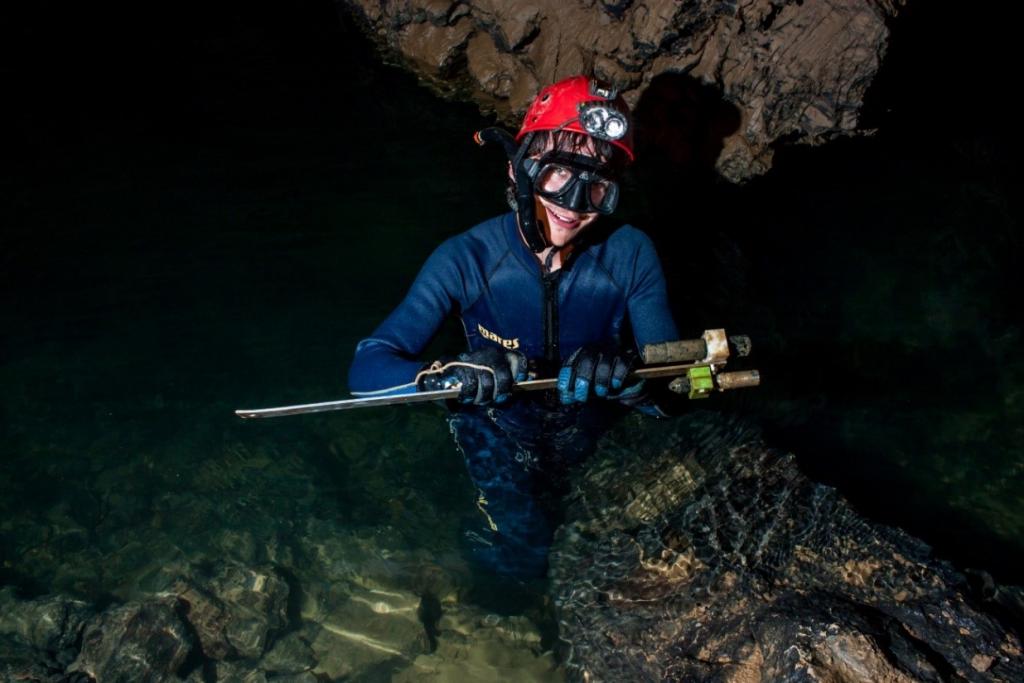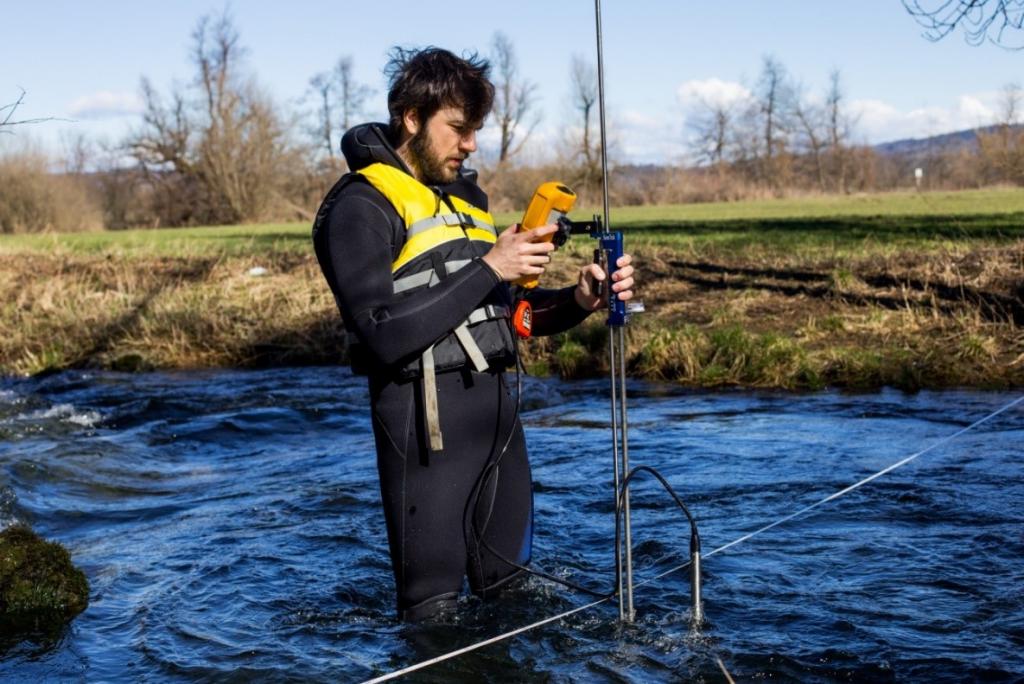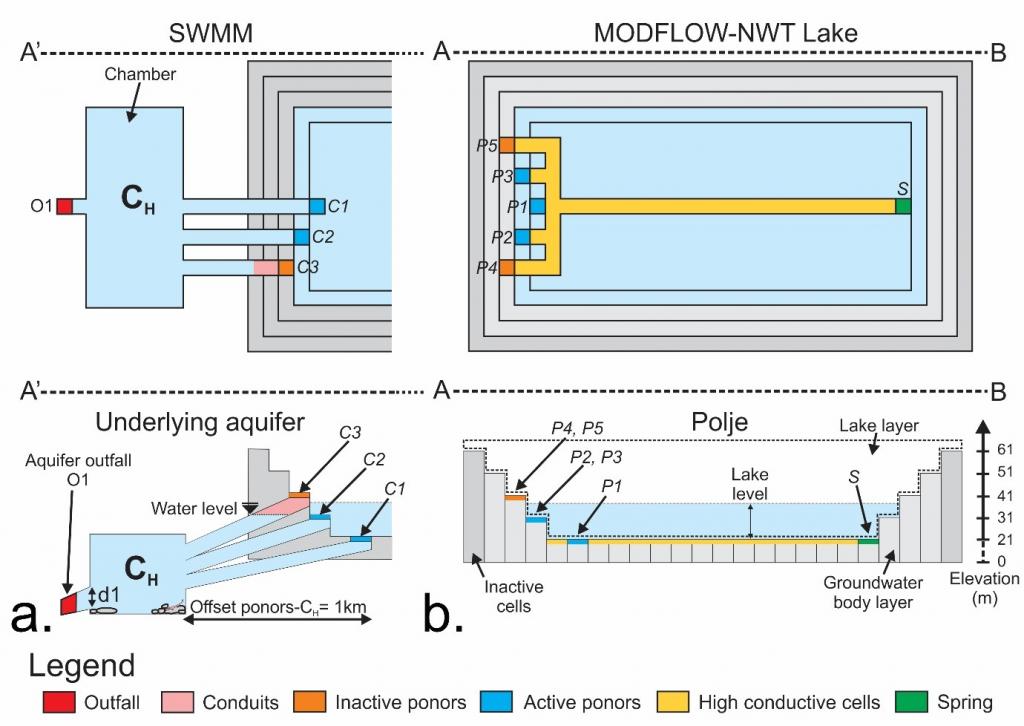Research on karst waters
Karst aquifers are important sources for water supply; in the world they cover a quarter, In Europe a third, and in Slovenia almost a half of total demands. They are also characterized by an exceptional variety of underground aquatic ecosystems. Due to the specificities of groundwater flow in the karst, they are highly vulnerable to environmental changes and pollution. For proper use and protection, good knowledge of the characteristics of the water flow and the transfer of substances in the karst is necessary. At the Karst Research Institute, these tasks are addressed using various research methods adapted to the specificities of the karst. Our main topics are the access to quality drinking water of sufficient quantities, effects of environmental changes on karst aquifers and habitats, sustainable management of karst water resources and high waters in karst.
In recent years, we have established an extensive network of continuous measurements of water levels, temperature and electrical conductivity in the various karst areas with data loggers (in springs, water caves, sinks), occasionally also discharges are measured at different hydrological conditions. This type of tracing with natural tracers is complemented by targeted sampling (during flood pulses or in exceptional hydrological conditions) for chemical, biological and microbiological analyses, which are largely carried out in our own laboratories. Important additional information on the directions and characteristics of the groundwater flow is obtained by tracing with artificial tracers. Field data are included in numerical models to determine the quantities of water, as well as velocities and directions of flow through the karst aquifer. In the previous years developed method of vulnerability mapping has been tested in various areas in Slovenia and around the world and in this way its usefulness has been verified.

Installation of data loggers for water level, temperature and electrical conductivity measurements in karst caves.

Discharge measurements with Acoustic Doppler Current Profiler.

Conceptual hydrogeological model of a typical karst polje, aimed to test parameters that might influence flooding.
Results
Blatnik, M., Frantar, P., Kosec, D. & F. Gabrovšek, 2017: Measurements of the outflow along the eastern border of Planinsko Polje, Slovenia. Acta carsologica, 46/1: 83-93, https://ojs.zrc-sazu.si/carsologica/article/view/4774/4752 , doi: 10.3986/ac.v46i1.4774.
Blatnik, M., Mayaud, C. & F. Gabrovšek, 2019: Groundwater dynamics between Planinsko Polje and springs of the Ljubljanica River, Slovenia. Acta Carsologica, 48/2-3, in print.
Kogovšek, J. & M. Petrič, 2014: Solute transport processes in a karst vadose zone characterized by long-term tracer tests (the cave system of Postojnska Jama, Slovenia). Journal of Hydrology, 519A: 1205-1213, https://www.sciencedirect.com/science/article/pii/S002216941400657X, doi: 10.1016/j.jhydrol.2014.08.047.
Mayaud, C., Gabrovšek, F., Blatnik, M., Kogovšek, B., Petrič, M. & N. Ravbar, 2019: Understanding flooding in poljes: a modelling perspective. Journal of Hydrology, 575: 874-889, https://www.sciencedirect.com/science/article/pii/S0022169419304329, doi: 10.1016/j.jhydrol.2019.04.092.
Petrič, M., Kogovšek, J. & N. Ravbar, 2018: Effects of the vadose zone on groundwater flow and solute transport characteristics in mountainous karst aquifers: the case of the Javorniki-Snežnik massif (SW Slovenia). Acta carsologica, 47/1: 35-51, https://ojs.zrc-sazu.si/carsologica/article/view/5144/6593 , doi: 10.3986/ac.v47i1.5144.
Turpaud, P., Zini, L., Ravbar, N., Cucchi, F., Petrič, M. & J. Urbanc, 2018: Development of a protocol for the karst water source protection zoning: application to the Classical Karst Region (NE Italy and SW Slovenia). Water resources management, https://link.springer.com/article/10.1007/s11269-017-1882-4,doi: 10.1007/s11269-017-1882-4.
Vižintin, G., Ravbar, N., Janež, J., Koren, E., Janež, N., Zini, L., Treu, F. & M. Petrič, 2018: Integration of models of various types of aquifers for water quality management in the transboundary area of the Soča/Isonzo river basin (Slovenia/Italy). Science of the total environment, 619/620: 1214-1225. https://doi.org/10.1016/j.scitotenv.2017.11.017 , doi: 10.1016/j.scitotenv.2017.11.017